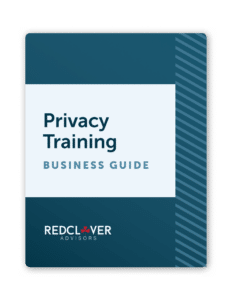Move over, cybersecurity tabletops – there’s a new sheriff in town. While you’ve been busy simulating ransomware attacks, privacy professionals have been cooking up their own version of “what-if” scenarios. And trust me, it’s not just another boring compliance exercise.
Enter the privacy tabletop – the creative brainchild of privacy teams who are tired of being the “Department of No” and ready to become the “Department of Let’s Figure This Out Together.”
What’s a Privacy Tabletop? (Spoiler: Not Your Grandmother’s Card Table)
Think of it as a live-action privacy impact assessment, minus the mundane checkboxes and sleep-inducing documentation. It’s where privacy professionals, business teams, and lawyers gather to play out real-world scenarios before they become real-world problems.
As Christin McMeley, Comcast’s chief privacy and data strategy officer, puts it, imagine you’re building an app with both adult and children’s content. Instead of waiting for the privacy team to rain on your parade after the fact, you gather everyone in a room and start asking the tough questions:
– How do you tell a 17-year-old from a 20-year-old user?
– What happens when you can’t tell?
– What kind of cookies are going on that website?
– Who needs access to what data?
Suddenly, you’re not just checking boxes – you’re having actual conversations about real problems. Mind-blowing, right?
Why It Works (And Why Your Company Needs It Yesterday)
Here’s the thing: Privacy laws are multiplying faster than streaming service subscriptions. We’re talking 19 different privacy laws in the US alone, plus a tangled web of industry-specific regulations. Try explaining that to your engineering team without watching their eyes glaze over.
But privacy tabletops flip the script. Instead of drowning teams in legal jargon, you’re walking through scenarios together, spotting issues before they become problems, and – here’s the kicker – actually making privacy by design work in practice.
The Secret Sauce: It’s All About Relationships
Let’s be real: Your typical privacy training is about as exciting as watching paint dry. But privacy tabletops? They’re like the corporate equivalent of a murder mystery dinner party (minus the murder, obviously).
These sessions bring together different perspectives:
– Business teams bring their innovation
– Privacy pros bring their expertise
– Lawyers bring their regulatory insight
– And somehow, magic happens
Making It Work: The How-To Guide
Want to run your own privacy tabletop? Here’s the recipe for success:
1. Pick Your Scenario: Choose something relevant to your team. Building a new app? Planning a marketing campaign? Perfect.
2. Gather Your Players: Mix business folks with privacy pros and throw in some legal eagles for good measure.
3. Start the Conversation: Begin with basic questions and let them spiral into more complex scenarios. It’s like a choose-your-own-adventure book, but for privacy.
4. Keep It Real: Focus on practical solutions, not just theoretical compliance.
The AI Plot Twist
In today’s world of artificial intelligence and machine learning, privacy tabletops aren’t just useful – they’re your corporate crystal ball. With AI regulation moving quickly (hello, EU AI Act, Colorado Privacy Act, and FTC guidelines), companies can’t afford to wait for perfect regulatory clarity before innovating.
Think about it: Traditional AI isn’t exactly new – those annoying IVR systems that never understand what you’re saying? That’s AI. Your TV remote suggesting more shows like “The Great British Bake Off” after your weekend binging session? Also AI. But now we’re dealing with generative AI, large language models, and systems that make those old applications look like calculator apps.
Here’s where privacy tabletops become your secret weapon:
Spot the Unintended Consequences: Instead of waiting for your AI to go rogue like a bad sci-fi movie, you can play out scenarios before they happen. What could go wrong with that customer service chatbot? How might that automated decision-making system impact different user groups?
Build Trust from Day One: As Christin McMeley points out, you can’t wait for 100% perfect compliance – but you can aim for that sweet spot of 80-90% while continuously improving. Privacy tabletops help you find that balance between innovation and responsibility.
Cross-Pollinate Perspectives: When you get diverse voices in the room – from engineers to ethics experts – you start catching things that single-discipline teams might miss. It’s like having a privacy-focused version of the Avengers (minus the cool costumes).
Privacy tabletops aren’t just another corporate buzzword – they’re a practical tool for making privacy part of your company’s DNA. They turn abstract compliance requirements into concrete actions, help teams collaborate effectively, and might even make privacy fun (gasp!).
The Bottom Line
And let’s be honest – in a world where privacy disasters can turn into PR nightmares faster than you can say “data breach,” wouldn’t you rather catch these issues during a tabletop exercise than on Twitter?
So, what are you waiting for? It’s time to gather your teams, pick your scenarios, and start playing out those privacy “what-ifs.” Just remember to bring cookies – they make everything better (and no, we’re not talking about the tracking kind).
Put Privacy First for Lasting Peace of Mind
Privacy isn’t just about avoiding fines or checking a compliance box—it’s about safeguarding consumer trust. Privacy tabletops bring a proactive, collaborative approach to addressing complex privacy challenges, ensuring your company is ready for whatever comes next.
By integrating privacy into the core of your business operations—whether through scenario planning for AI or safeguarding customer data—you’re not just protecting your business—you’re setting it apart.
Ready to make privacy your competitive advantage? Schedule a consultation to learn more about how Red Clover Advisors can help you create an adaptable, compliant privacy program that fosters consumer trust.
Privacy Training Business Guide
Download our Privacy Training Guide to create effective privacy training programs.



